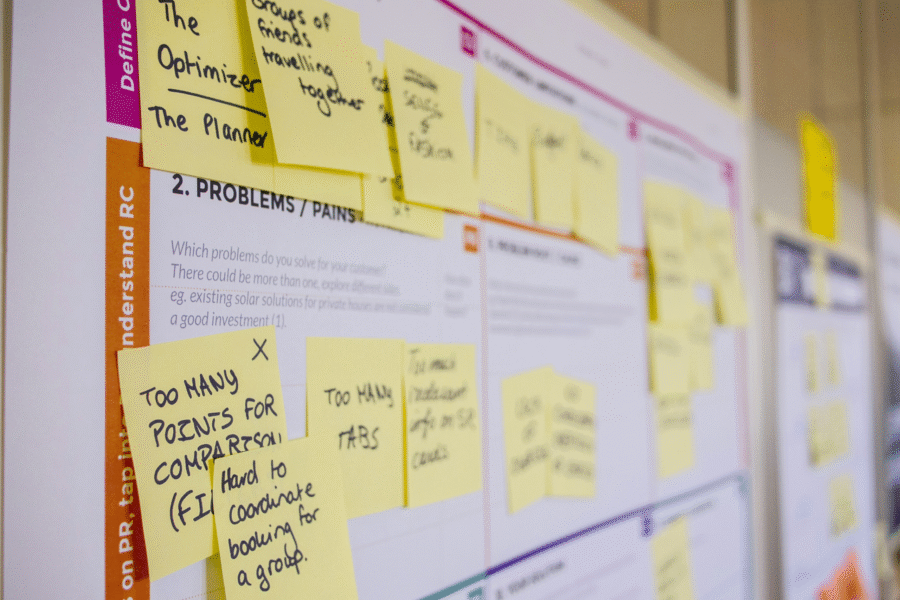Project success is determined by delivering work on time and within budget. In order to achieve this, project managers must have access to the right data at the right time.
Real-time dashboards and intuitive reporting features supplied by a project delivery software tool, such as Proteus, have become invaluable to keeping energy projects on track, enabling project teams to constantly monitor project progress, respond proactively to challenges and optimize workflows.
In this blog, we will highlight the importance of monitoring KPIs to successfully manage project performance and explore how dashboards and reporting are key to driving successful project outcomes.
The significance of monitoring KPIs in successful project performance management.
Performance management involves consistently monitoring and reporting on project progress to make data-driven decisions, identify red flags early and apply corrective action if necessary. It encourages project teams to be proactive rather than reactive with the overall aim of ensuring the project is completed within its budget, on time and meets the expectations of stakeholders.
Key performance indicators (KPIs) are integral to successful project performance management. Project managers should select and monitor the KPIs that are most relevant and appropriate to their projects. When used effectively, these quantifiable metrics provide actionable insights into project performance, allowing comparison of actual progress and performance against expectations and helping project managers understand where additional action, resources or budget is required to support better project outcomes.
Whether you are building an offshore wind farm or a carbon capture and storage facility, KPIs are essential to managing successful projects in the energy sector. Some examples of typically used metrics include;
- Schedule Performance Index (SPI)
By comparing the amount of work completed against the planned schedule, this metric reflects whether a project is behind, ahead or on schedule. This highlights how efficiently work is being carried out.
- Earned Value (EV)
This measure integrates scope, schedule and cost to provide an objective measure of how a project is progressing. Earned value calculations are at the heart of Proteus’ project controls and enables accurate forecasting.
- Cost Variance (CV)
This indicates the difference between the project’s actual expenditure and its planned budget. This helps flag deviations from the project budget and lets project teams correct it before it negatively impacts project performance.
- Schedule Variance (SV)
Shows how much a project is deviating from the initial agreed timeline. This helps project teams to effectively address any delays in work.
- Estimate at Completion (EAC)
This metric is used to forecast the project’s final cost based on the current project progress. It is particularly valuable when variations have been added to a project as it foresees any potential overspending or resource shortages, allowing project managers to intervene early.
Why project dashboards matter.
Data dashboards supplied by project management software, such as Proteus, make tracking project progress and KPIs incredibly simple by centralising your information and giving you access to accurate information in real-time.
Some benefits of using dashboards to monitor project progress include:
- Enhanced visibility
Project tracking dashboards give project managers a clear overview of how a project is progressing in real-time and put this data into a simple format that is easy to interpret and make decisions from. This significantly improves the visibility offered by static spreadsheets. Moreover, Proteus’ KPI dashboard is also configurable so that you can monitor exactly what is most important to your project.
- Informed decision-making
KPIs are important for successful data-driven project management. With access to accurate and up-to-date information, project teams can assess performance regularly and decide on the next steps to optimise project outcomes.
- Identify risks earlier
With data insights provided in real-time, project managers can identify deviations and bottlenecks earlier and apply corrective action quickly. For example, Proteus helps you track your budget progress. If the budget is running low, you can act quickly to ensure it does not negatively impact project progress.
- Boosts Collaboration
Dashboards get everyone on the same page by ensuring that information regarding project progress is accessible, enhancing communication and team collaboration.
Why is reporting on KPIs important?
Regular reporting is key to measuring performance. It provides a structured way to monitor performance, communicate progress and align stakeholders.
Key benefits of KPI reports include;
- Stakeholder Communication
Energy projects involve many stakeholders. It is important to share reports on key metrics and project status to keep everyone informed and up-to-date.
- Accountability
Consistent reporting on KPI ensures transparency on project performance.
Project teams should be accountable by highlighting areas that are running behind schedule or may need more attention to keep the project on track.
- Improve future projects
You can look at historical reports to learn from past projects. This helps to improve processes for future projects such as resource management.
How does Proteus project software simplify KPI reporting?
16% of project managers say that visibility and reporting are their biggest challenges reflecting the continued reliance on spreadsheets and disparate systems in managing projects. Moreover, 50% of project professionals spend over a day manually collating project reports. Project software streamlines reporting and saves time for project teams.
Generating a KPI report is effortless with Proteus. Project team members can create custom datasets with the metrics they want to report on. Moreover, they can insert visualisations such as s-curve graphs and Gantt charts which can be easily re-arranged with drag-and-drop functionality. Proteus gives project teams flexibility and control over the content and structure of their reports.
Proteus also makes it incredibly simple to create and share KPI reports tailored to particular stakeholders. Once you’ve selected the key data you wish to report on, you can simply save it and send a secure link to people who may not have access to Proteus. Proteus’ reporting features significantly reduce the time and complexity of report generation, streamline communication and ensure stakeholders receive insightful and timely project updates.
Conclusion.
As the energy industry continues to digitalise, taking advantage of data insights from project software will be essential to remain competitive and achieve project success. Proteus project sales and delivery software, provide project teams with the tools they need to simplify and streamline project tracking and reporting. Real-time dashboards displaying relevant KPIs are crucial to mitigating risks and managing successful projects. Additionally, Proteus’ reporting functionality saves project teams valuable time and drives efficiency.
About Proteus
Proteus is an end-to-end project management solution developed for the energy and engineering consulting industries.
Proteus is industry-proven and enables consultancies to meet project demands across the full lifecycle, from proposal development to project delivery. Proteus helps its customers win more business, increase efficiencies, manage expenditures, and improve project controls.
Critical workflows, automation, and controls are integrated into Proteus. These include opportunity evaluation, proposal building, resource planning, budget tracking and forecasting, real-time multi-level restricted dashboards, and project performance analytics.
Third-party integrations and customised solutions allow Proteus’ users, which include C-suite, project leads, and engineers, to get the exact software solution needed for their business.
We offer a free onboarding consultation service to ensure your company account is set up to your company’s needs.
How to get Proteus
Proteus operates under a software-as-a-service (SaaS) model. We offer Enterprise packages and flexible pricing solutions: contact our team to learn more. We designed Proteus to be simple, and that means you can get up and running on Proteus without an IT team or support from a programmer. You will want to spend a bit of time configuring the admin console so that you have everything set up to suit your company structure, but it’s very intuitive and you don’t need a PhD in IT. However, we want you to get the best out of what is a brilliantly powerful tool, so don’t hesitate to ask for our support. We have a team of product experts who are ready to help you with the configuration process, so get in touch today by filling out the form below:



